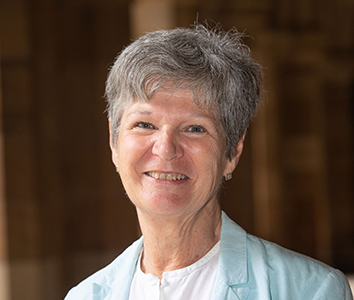Webinar synopsis
The presentation seeks to understand how to apply internalisation theory as circumstances change. There is a view that the theory needs to change when circumstances change, however a proper understanding of the theory helps to explain the very phenomena seen as challenges to the theory.
Theory – Evolving Phenomena
1. Explaining Flows of FDI (Hymer, Kindleberger, Vernon, Dunning).
2. The MNE as an Organization (internalization Theory – Buckley and Casson, Dunning, Hennart).
3. Alternatives to FDI – Alliances, Subcontracting, JVs (leading to GVCs and MNE as a distributed networks).
From Big questions to Grand Challenges
More recently, three major areas (among many) where IB scholars have developed theory to explain important and emerging phenomena in a way that is scientifically valid, practically relevant, and intellectually stimulating
(1) explaining and providing theoretical insights into the rise of MNEs from emerging economies;
(2) exploring the growth, causes, and consequences of offshoring and the disaggregation of global value chains; and
(3) understanding how MNEs respond to greater pressures for social responsibility and sustainability in their global operations.
Grand Challenges
Grand Challenges are complex problems with no easy solutions, which transcend national borders and affect future generations. Grand challenges are phenomena driven, require interdisciplinary analysis, span many levels of analysis and involve the interaction of business, government and civil society in the global environment (Buckley, Doh and Benischke 2017). Grand challenges involve complex interactions among multiple stakeholders: business, government, and society. Grand challenges include climate change, poverty (food security), global health and wellbeing, human rights, forced migration and environmental protection.
Given the need to meet new phenomena-based grand challenges with new theory, the task for IB researchers becomes the advancement of the frontiers of knowledge within the constraints of abilities, resources, and institutions. This effort must maintain a commitment to theoretical and methodological rigor, but it must also go beyond the incremental, seeking to reveal new insights that can illuminate broader global and societal issues and challenges. These include issues of governance, (CSR, sustainability, the UN’s SDGs), pressures from civil society on business and the “fracture” in the global economy (US versus China) arising from protectionism, techno-nationalism and national security issues.
This event is part of the annual BAM Academic Affairs of Conference and Capacity Building (AACCB) Masterclasses.
Our series of BAM Masterclasses are delivered by prominent management theorists from across the globe each year. These online webinars are an exceptional learning experience, revealing how top academics think about the world, what inspires them, and how they develop and apply their ideas. Where do influential ideas come from? What leads to them to being widely taken up?
During the Masterclasses, our highly renowned speakers explain how their academic and intellectual journeys begun, and how they developed as influential academics in management. There are also opportunities to ask questions and engage directly with the speakers.
___________________________________________________________________________
Provider Information
BAM Council's Sub-Committee of Academic Affairs of Conference and Capacity Building (AACCB)
__________________________________________________________________________
Who Should Attend?
The event speaks to Sections A1 and A2 as detailed in the BAM Framework
___________________________________________________________________________
Speakers
___________________________________________________________________________
Chaired by
________________________________________________________________
Benefits of attending
- Learn about new frontiers in management research methods
- Gain greater clarity on your methodological choices
- Network with other doctoral students and academics all in one place
__________________________________________________________________________
Contact
Please contact the BAM Office at [email protected] with any queries.
___________________________________________________________________________
Event Fee
BAM Members: Free
Non-Members: £50
Non-Members, Students: £40
If you are booking multiple paid events as a Non-Member, it may be cheaper for you to purchase a BAM Membership as nearly all BAM Events are free or at a discounted rate for Members.
For more information, please visit BAM Membership
___________________________________________________________________________
Registration closes on 25th of April 2023 at 23:59 UK time
Payment for the event must be received before the start date of the event concerned. Access will not be permitted to the event if full payment has not been received.
Cancellations
-
Cancellations received within 14 days of booking your place on the event will receive a full refund.
-
Cancellations received after the 14-day cancellation period and later than 14 days before the start date of the event will not be eligible for a refund.
-
Although we endeavour to run all events as advertised, BAM reserves the right to cancel any event if, for example, there are not enough people to justify running the event or if other significant unforeseen circumstances arise.
To cancel a booking a cancellation request must be submitted via your BAM Account, to do this:
- Go to your BAM Account
- Click 'My Events'
- Under 'Upcoming Events' will be the booking, please click Cancel Booking
- Follow the steps and complete the request



